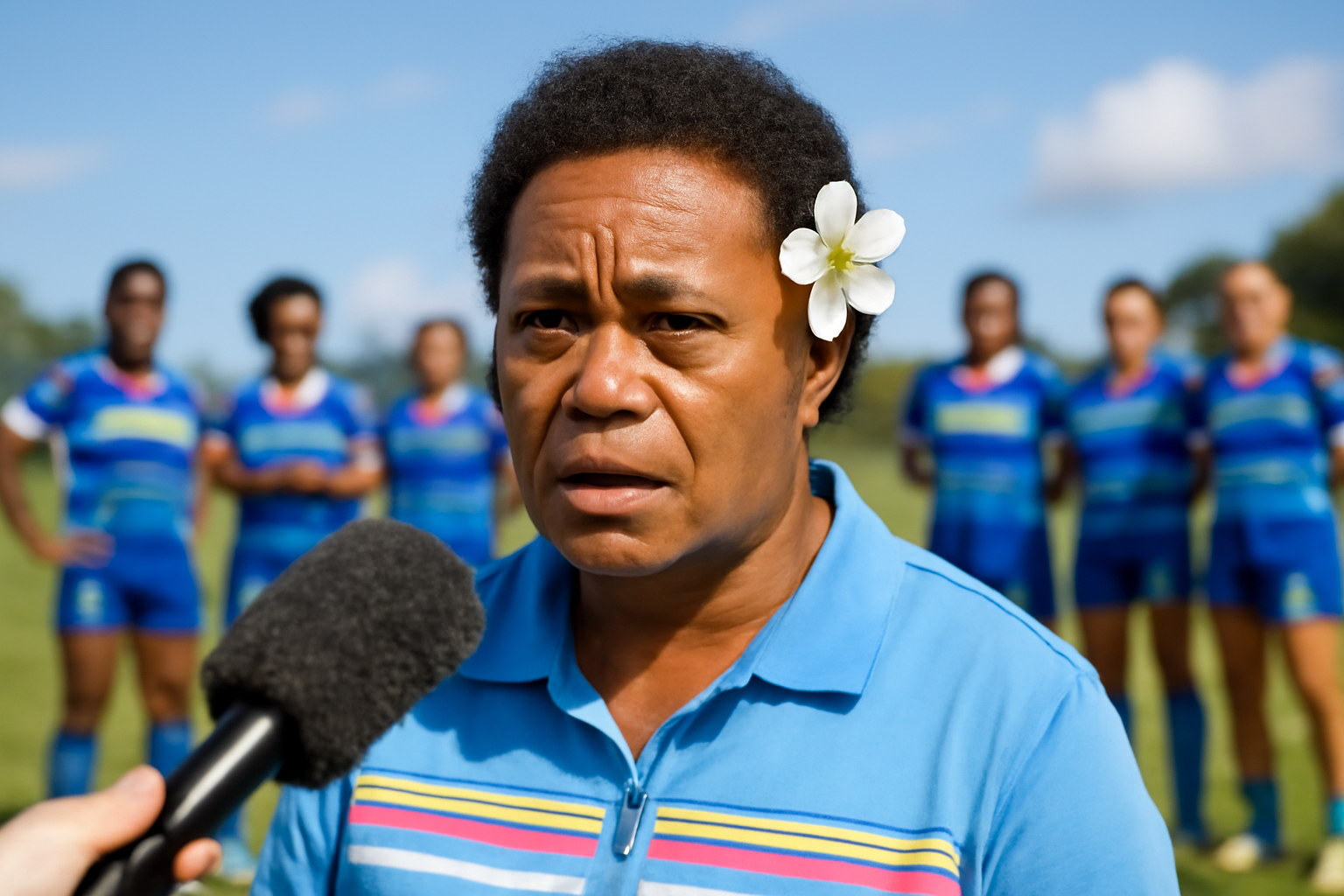
The Fiji Rugby Union (FRU) has made headlines recently with the abrupt dismissal of its director, Laijipa Naulivou, who served in the position for only four days. The decision came after Naulivou's highly controversial remarks concerning the role of lesbianism within the women's rugby team, which she blamed in part for the team's poor performance at the Paris Olympics.
Naulivou, a trailblazer in Fijian women's rugby and former captain of the national team, assumed her role at the FRU on a Saturday. However, she rapidly found herself at the center of a storm of criticism following her comments to a local newspaper. She claimed there was a "gay problem" within the women's team and suggested that this issue needed to be "taken out" to improve future performances.
Her comments sparked outrage both locally and globally. Numerous women's rights organizations in Fiji, a nation of nearly a million people, were quick to denounce Naulivou's statements. The Fiji Women’s Rights Movement (FWRM) was particularly vocal, with its executive director, Nalini Singh, describing the comments as "deeply troubling." Singh argued that the focus should be on more pressing issues such as funding and player welfare, instead of the players' sexual orientation.
The Fiji Women’s Crisis Centre and DIVA for Equality Fiji also criticized Naulivou's stance, calling for enhanced protections for LGBTQ+ athletes in Fiji. The backlash was swift and severe, with many pointing out that Naulivou's views were detrimental to the spirit of inclusivity and equality in sports.
Despite the controversy, Naulivou remained unapologetic in interviews with the media. She insisted that her position on LGBTQ+ participation in women's rugby was clear and stated her belief that it was a "problem" in the sport. She went on to cite a report she claimed was given to her by a former FRU chief executive, which supposedly highlighted similar issues in European women's rugby.
Naulivou’s remarks not only led to her dismissal but also prompted the FRU to issue a statement reaffirming its commitment to upholding professional standards and rejecting any form of discrimination. FRU chairman John Sanday emphasized the importance of maintaining the integrity of Fiji Rugby, stating that Naulivou's opinions were her own and did not reflect the FRU's official stance.
In the sports arena, the Fiji women's rugby sevens team had a challenging Paris Olympics. They finished last out of 12 teams, losing all matches. Notably, teams like New Zealand, Canada, and the USA, which had openly LGBTQ+ players, performed well, occupying the top positions on the podium. This discrepancy highlights the complexity of attributing performance issues to players' sexual orientation.
Fiji's rugby teams have a rich history of competition. The women's team, known as "Fijiana," had previously celebrated success, earning a bronze medal at the Tokyo Games. The team continues to face challenges, both on and off the field, as they strive for a balance between tradition and modern inclusivity.
The dismissal of Naulivou marks a significant moment for the FRU as it seeks to navigate the evolving landscape of sports, where issues of diversity and inclusion are increasingly in the spotlight. The organization now faces the challenge of rebuilding trust with its athletes and stakeholders.
As the conversation around inclusivity in sports continues to grow, Fiji Rugby's response to this incident will likely serve as a case study for other sports organizations grappling with similar issues. With upcoming tournaments and the Women's World Cup on the horizon, Fiji's teams will be looking to focus on performance and unity, setting aside the divisive rhetoric of the past.
In conclusion, the dismissal of Laijipa Naulivou as the director of Fiji Rugby Union underlines the importance of promoting an inclusive environment within sports. The incident serves as a powerful reminder of the work that remains to be done in ensuring equality and acceptance for LGBTQ+ athletes worldwide.
For more updates on LGBTQ+ issues in sports and beyond, stay connected with our community.
Related Posts
Triumphant Trans Woman Wins Legal Battle and Inspires Others to Stand Up for Their Rights
Breaking new ground: a landmark victory in transgender rights After battling in courtrooms and enduring endless challenges, Diana Portillo, a transgender woman, has secured a monumental victory in her decade-long fight against workplace discrimination. The result? Nearly $1 million awarded in a historic settlement. But this isn't just a win on paper—it represents a powerful precedent in combati [...]
Pride Month in Latin America: Protests and Demands for Equality
**Celebrating Pride and advocating LGBTQ+ rights in Latin America** Pride Month in Latin America was a lively mix where celebration met activism. Communities united, not just throwing a party but making a stand—demanding equality and pushing governments toward better protection and rights recognition. Throughout Latin America, pride events erupted in marches and cultural displays, each with a c [...]
Transgender Erasure Actions Implemented by National Park Service
```html Trump administration's impact on national park service and transgender recognition The Trump administration made notable moves in undermining transgender representation, which included directing agencies like National Park Service not include "T" and "Q" when they refered “LGBTQ” in any official communication. This move seems part a broader plan by this administration aimed at reducin [...]